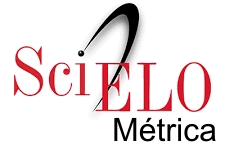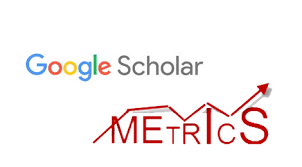Agotamiento emocional a partir de variables demográficas en tiempos de pandemia
Palabras clave:
Agotamiento emocional, salud laboral, características demográficas, industria manufacturera.Resumen
La pandemia del COVID-19 ha afectado considerablemente la salud emocional de las personas, en el entorno organizacional la vida de los empleados está expuesta a situaciones que afectan la salud emocional. Por ello, esta investigación tuvo como objetivo analizar si el agotamiento emocional es diferente de acuerdo con la edad, escolaridad, antigüedad, puesto y sector, de empleados que laboran en la Industria de Exportación de Ciudad Juárez. Fue un estudio cuantitativo, no experimental, transversal e inferencial, en una muestra de 580 empleados durante los meses de abril a septiembre de 2020, se aplicó un instrumento de 8 ítems. Se realizó un análisis de varianza [ANOVA] y se consideraron como variables la edad, escolaridad, antigüedad, puesto y sector. De acuerdo con los resultados, se encontró que no existen diferencias significativas en el puesto laboral y la edad con respecto al agotamiento emocional. No así, se encontraron diferencias estadísticamente significativas en los grupos a partir de la antigüedad laboral, escolaridad y sector. Es decir, el agotamiento emocional varía dependiendo del tiempo que tienen los empleados trabajando y la preparación académica con la que cuentan, a excepción de los que cuentan con un posgrado, y del sector en el cual trabajan los sujetos.
Descargas
Referencias
Ángeles López-Cabarcos, M., López-Carballeira, A., y Ferro-Soto, C. (2021). How to moderate emotional exhaustion among public healthcare professionals? European Research on Management and Business Economics, 27(2), 100140. doi: https://doi.org/10.1016/j.iedeen.2020.100140
Asmundson, G. J. G., y Taylor, S. (2020). How health anxiety influences responses to viral outbreaks like COVID-19: What all decision-makers, health authorities, and health care professionals need to know. Journal of Anxiety Disorders, 71, 102211. doi: https://doi.org/10.1016/j.janxdis.2020.102211
Baer, M. D., Dhensa-Kahlon, R. K., Colquitt, J. A., Rodell, J. B., Outlaw, R., y Long, D. M. (2014). Uneasy lies the head that bears the trust: the effects of feeling trusted on emotional exhaustion. Academy of Management Journal, 58(6), 1637-1657. doi: https://doi.org/10.5465/amj.2014.0246
Bakker, A. B., Demerouti, E., y Sanz-Vergel, A. I. (2014). Burnout and work engagement: the JD–R approach. Annual Review of Organizational Psychology and Organizational Behavior, 1(1), 389-411. doi: https://doi.org/10.1146/annurev-orgpsych-031413-091235
Balducci, C., Alessandri, G., Zaniboni, S., Avanzi, L., Borgogni, L., y Fraccaroli, F. (2021). The impact of workaholism on day-level workload and emotional exhaustion, and on longer-term job performance. Work & Stress, 35(1), 6-26. doi: https://doi.org/10.1080/02678373.2020.1735569
Berbeo, A. M. (2018). Caracterización del síndrome de Burnout y estrés laboral crónico en instructores del Centro de Servicios Financieros-SENA. Revista Finnova: Investigacion e Innovacion Financiera y Organizacional, 2(4), 25-34. doi: https://doi.org/10.23850/24629758.1385
Chen, H., y Eyoun, K. (2021). Do mindfulness and perceived organizational support work? Fear of COVID-19 on restaurant frontline employees’ job insecurity and emotional exhaustion. International journal of hospitality management, 94, 102850. doi: https://doi.org/10.1016/j.ijhm.2020.102850
Cullen, W., Gulati, G., y Kelly, B. D. (2020). Mental health in the COVID-19 pandemic. QJM: An International Journal of Medicine, 113(5), 311-312. doi: https://doi.org/10.1093/qjmed/hcaa110
Dong, L., y Bouey, J. (2020). Public mental health crisis during COVID-19 pandemic, China. Emerging infectious diseases, 26(7), 1616-1618. doi: https://doi.org/10.3201/eid2607.200407
Gil-Monte, P. R. (2003). Burnout syndrome: ¿síndrome de quemarse por el trabajo, desgaste profesional, estrés laboral o enfermedad de Tomás? Revista de Psicología del Trabajo y de las Organizaciones, 19(2), 181-197.
Gómez-García, R., Alonso-Sangregorio, M., y Llamazares-Sánchez, M. L. (2019). Burnout in social workers and socio-demographic factors. Journal of Social Work, 20(4), 463-482. doi: https://doi.org/10.1177/1468017319837886
Hair, J. F., Anderson, R. F., Tatham, R. L., y Black, W. C. (1999). Análisis Multivariante (5 ed.). Madrid: Prentice Hall Iberia.
Hernández, R., Fernández, C., y Baptista, P. (2014). Metodología de la investigación (6 ed.). México: McGraw Hill.
Index. (2021). Información estadística: Empleo empresas IMMEX CD., Juárez. Recuperado de https://indexjuarez.com/wp-content/uploads/2021/01/Enero-22.pdf
Khoo, E. J., Aldubai, S., Ganasegeran, K., Lee, B. X., Zakaria, N. A., y Tan, K. K. (2017). Emotional exhaustion is associated with work related stressors: a cross-sectional multicenter study in Malaysian public hospitals. Archivos Argentinos de Pediatria, 115(3), 212-219. doi: https://doi.org/10.5546/aap.2017.eng.212
Kung, Y.-T., Chi, S.-C., Chen, Y.-C., y Chang, C.-M. (2021). Using residual dynamic structural equation modeling to explore the relationships among employees’ self-reported health, daily positive mood, and daily emotional exhaustion. Healthcare, 9(1). doi: https://doi.org/10.3390/healthcare9010093
Lévy, J. P., y Varela, J. (2008). Análisis multivariable para las ciencias sociales. Madrid: Pearson Educación.
Liu, E., y Roloff, M. E. (2015). Exhausting silence: Emotional costs of withholding complaints. Negotiation and Conflict Management Research, 8(1), 25-40. doi: https://doi.org/10.1111/ncmr.12043
Marinković, N., Mirković, B., y Zečević, I. (2019). The relation between socio-demographic characteristics and burnout of primary school teachers. International Thematic Proceedia, 35-51. doi: https://doi.org/10.46630/dpp.2020
Maslach, C. (1998). A multidimensional theory of burnout. In C. Cooper (Ed.), Theories of organizational stress (Oxford ed., pp. 68-85). Reino Unido: Oxford.
Maslach, C. (2009). Comprendiendo el burnout. Ciencia y trabajo, 11(32), 37-43.
Maslach, C., & Jackson, S. E. (1981). The measurement of experienced burnout. Journal of Organizational Behavior, 2(2), 99-113. doi: https://doi.org/10.1002/job.4030020205
Maslach, C., Jackson, S. E., Leiter, M. P., Schaufeli, W. B., y Schwab, R. L. (1986). Maslach burnout inventory (3 ed.). California: Consulting psychologists press Palo Alto, CA.
Maslach, C., y Leiter, M. P. (2016). Understanding the burnout experience: recent research and its implications for psychiatry. World Psychiatry, 15(2), 103-111. doi: https://doi.org/10.1002/wps.20311
Maslach, C., Schaufeli, W. B., y Leiter, M. P. (2001). Job burnout. Annual review of psychology, 52(1), 397-422. doi: https://doi.org/10.1146/annurev.psych.52.1.397
Ozkula, G., y Durukan, E. (2017). Burnout syndrome among physicians: the role of socio-demographic characteristics. Dusunen Adam The Journal of Psychiatry and Neurological Sciences, 30, 136-144. doi: https://doi.org/10.5350/DAJPN2017300207
Pfefferbaum, B., y North, C. S. (2020). Mental health and the covid-19 pandemic. New England Journal of Medicine, 383(6), 510-512. doi: https://doi.org/10.1056/NEJMp2008017
Taris, T. W. (2006). Is there a relationship between burnout and objective performance? A critical review of 16 studies. Work & Stress, 20(4), 316-334. doi: https://doi.org/10.1080/02678370601065893
Tull, M. T., Edmonds, K. A., Scamaldo, K. M., Richmond, J. R., Rose, J. P., y Gratz, K. L. (2020). Psychological outcomes associated with stay-at-home orders and the perceived impact of COVID-19 on daily life. Psychiatry Research, 289, 113098. doi: https://doi.org/10.1016/j.psychres.2020.113098
WHO. (2020). Coronavirus disease (COVID-19) Recuperado de https://www.who.int/docs/default-source/coronaviruse/situation-reports/20200907-weekly-epi-update-4.pdf?sfvrsn=f5f607ee_2
Xiong, J., Lipsitz, O., Nasri, F., Lui, L. M. W., Gill, H., Phan, L., . . . McIntyre, R. S. (2020). Impact of COVID-19 pandemic on mental health in the general population: A systematic review. Journal of Affective Disorders, 277, 55-64. doi: https://doi.org/10.1016/j.jad.2020.08.001
Publicado
Número
Sección
Licencia
Derechos de autor 2021 ACADEMO Revista de Investigación en Ciencias Sociales y Humanidades

Esta obra está bajo una licencia internacional Creative Commons Atribución 4.0.










